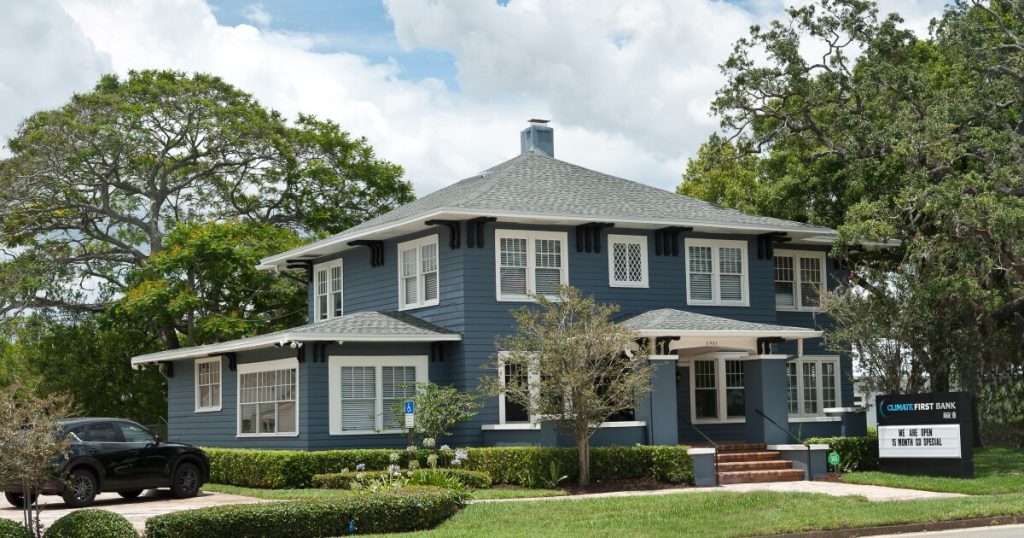Ken LaRoe can accurately be described as a de novo banking entrepreneur. LaRoe, 67, who began his banking career in the early 1980s, has founded three banks, including the $940 million-asset Climate First Bancorp in Orlando, Florida.
Both of LaRoe’s previous banks, Florida Choice and First Green, were sold before reaching their 10th anniversaries. Though the transactions were lucrative, totaling approximately $250 million, LaRoe is seeking a different, longer-duration future for Climate First, which opened in June 2021. The veteran CEO announced last month that he is stepping back from day-to-day management chores. Climate First named LaRoe’s longtime wingman Lex Ford, 40, as bank CEO. LaRoe will serve as Climate First Bank’s executive chairman.
Climate First intended the Jan. 15 transition announcement to signal that it is taking the issue of succession seriously, moving even as LaRoe, who is retaining his title as CEO of Climate First Bancorp, remains actively involved and the company experiences a surge of growth.

“Proactively promoting leaders means that we can reach our business goals and continue to make long-term, sustainable investments,” LaRoe said. “Probably the number one reason banks sell is lack of transition. The CEO gets old, worn out, burned out, then they just sell the bank.”
LaRoe said he was nowhere near burnout, but he did want the ability to focus more on OneEthos, the fintech solar financing platform Climate First launched in 2022, along with overall corporate strategy. “The fintech is kind of a new space for me,” LaRoe said.

The transition will likely be minimally disruptive for Climate First. Leadership changes have been under discussion for about a year. Ford, who was already Climate First Bank’s president, gradually expanded his role during the period. “Probably in mid-2023, I started seeing the more [initiative] I took, the more he relaxed,” Ford said of LaRoe. “I appreciate the trust from Ken, the board, the shareholders.”
Robert Voth, a managing director at Russell Reynolds Associates in Cleveland, described Climate First’s transition plan as atypical for a bank its size. “This does not follow the pattern,” Voth said, noting more often than not community banks struggle with succession.
“It’s part and parcel of what makes a community bank,” Voth said. “The knowledge, the comfort, the recognition that you know the people. Senior management teams tend to grow together. Instead of a waterfall [personnel] environment, where you have a CEO with 40 years of experience whose direct reports at the important positions of head of the businesses and finance are varied in their time with the company, they all tend to have 40 years of experience.”
“It takes immense institutional political fortitude to break that cycle by injecting a newer banker into a close-knit management team and add him or her immediately to the succession process,” Voth added. “At larger regional banks, succession is not an issue, but smaller community banks it sure is.”
Climate First was founded with a
Climate First has been in expansion mode since it opened its doors three-and-one-half years ago. The company expects to reach $1 billion of assets in March, according to LaRoe.
“We’ll be the fastest new charter to reach” the $1 billion threshold, LaRoe said.
Climate First’s momentum can be gleaned from its 2024 results. The bank, which achieved profitability midway through 2023, reported net income totaling $1.5 million through the first nine months of this year, driven by brisk loan growth. Originations totaled $526 million in 2024, including $98 million in December. Climate First’s progress has exceeded expectations, LaRoe said. “It’s been far more successful, far faster-growing, far more profitable, far more everything.”
That success appears to have provided LaRoe with enough of a comfort level to take a step back from daily management chores. “How can I question someone’s pipeline? How can I question someone’s sales skills if we’re closing almost $100 million of loans” in a month, LaRoe said.
Ford has no plans for a slowdown now that he has assumed responsibility for day-to-day operations. In the near-term, Ford will supervise Climate First’s recent expansion into cannabis banking. He’s also planning to enter wealth management and investment banking. The overarching goal is to reach $10 billion of assets within the next decade.
“The management team, the lenders, everybody is on board with the growth story,” Ford said. “Those who are new and question whether it can happen jump on board when they see crazy things like the $98 million production month.”
Implementing a succession plan does more than insulate an institution from premature sale, according to Voth. There are bottom-line implications, too. In a
Climate First may already be receiving a version of the succession planning boost Voth described. Ford said he received calls from three or four bankers he had been attempting to recruit in the days after its transition announcement. “Nobody believed [a transition] would happen until Climate First made the announcement,” Ford said. “Everybody just thinks you’re going to sell the bank no matter what you do or say.”
